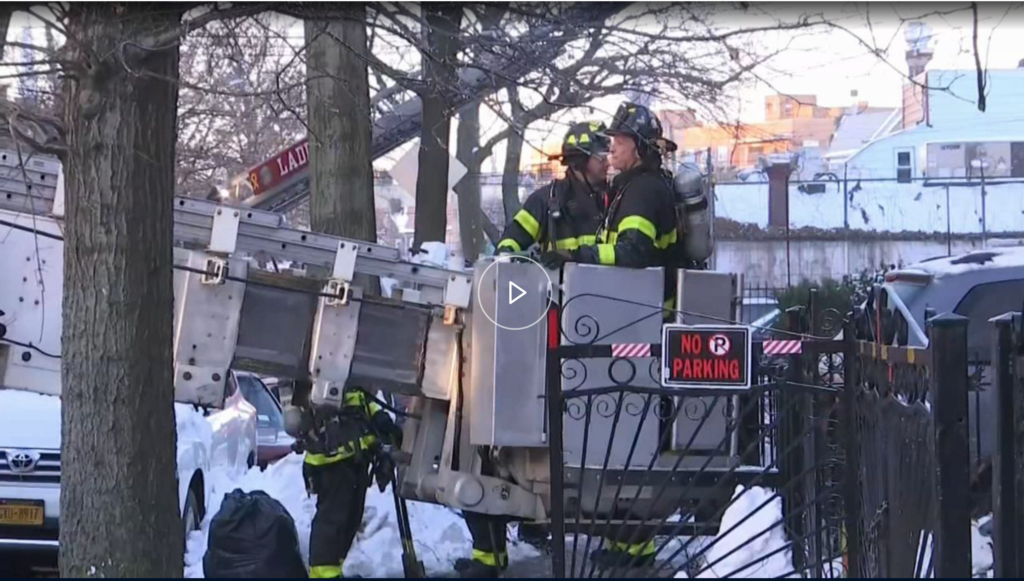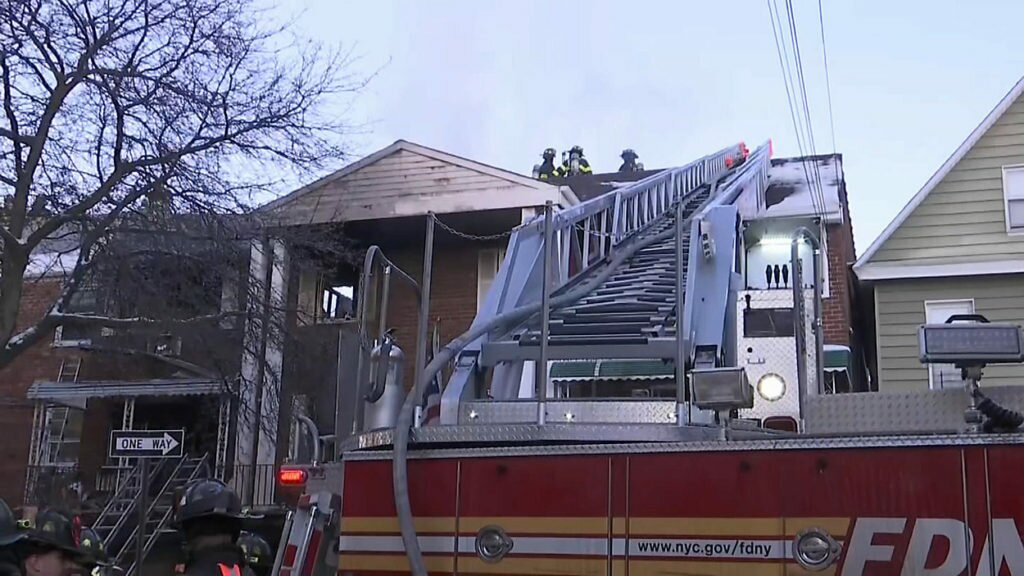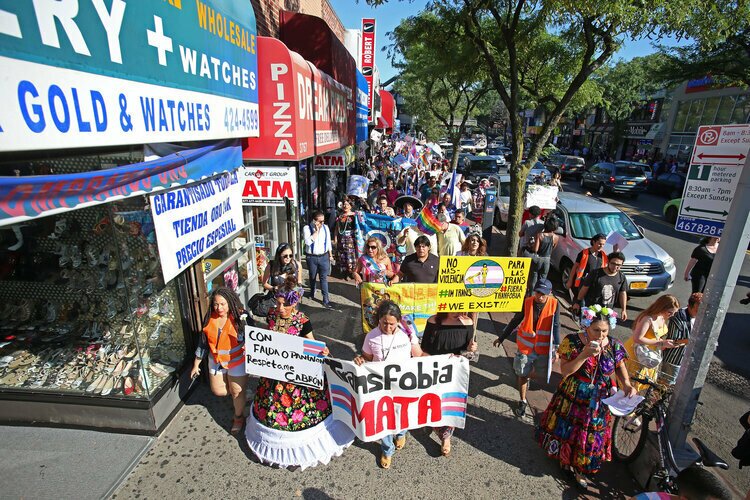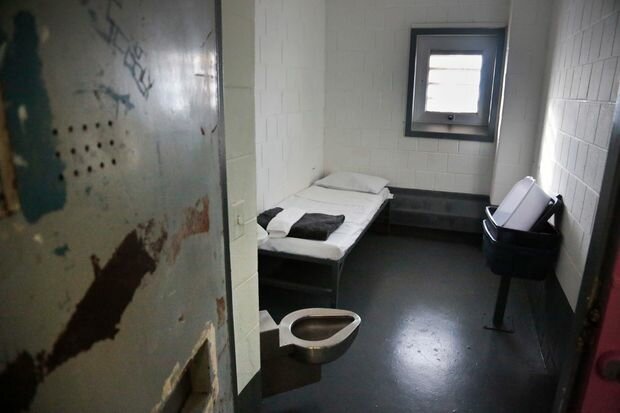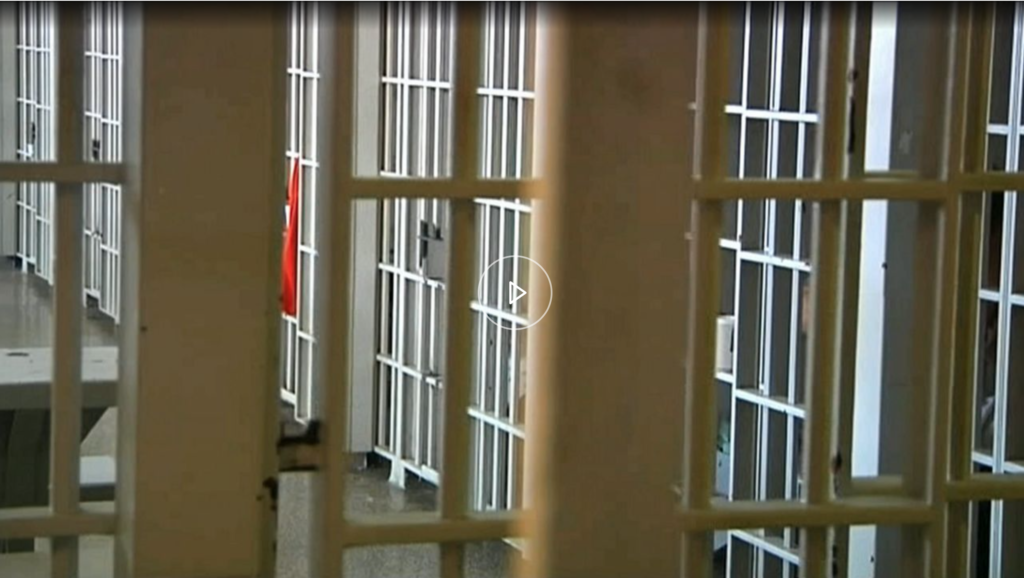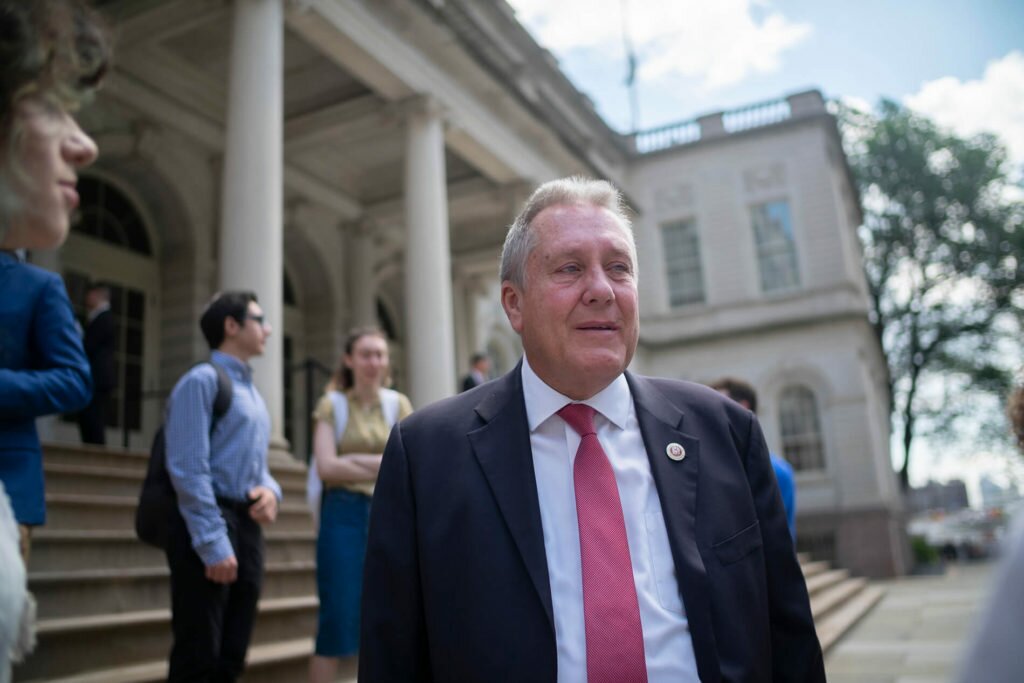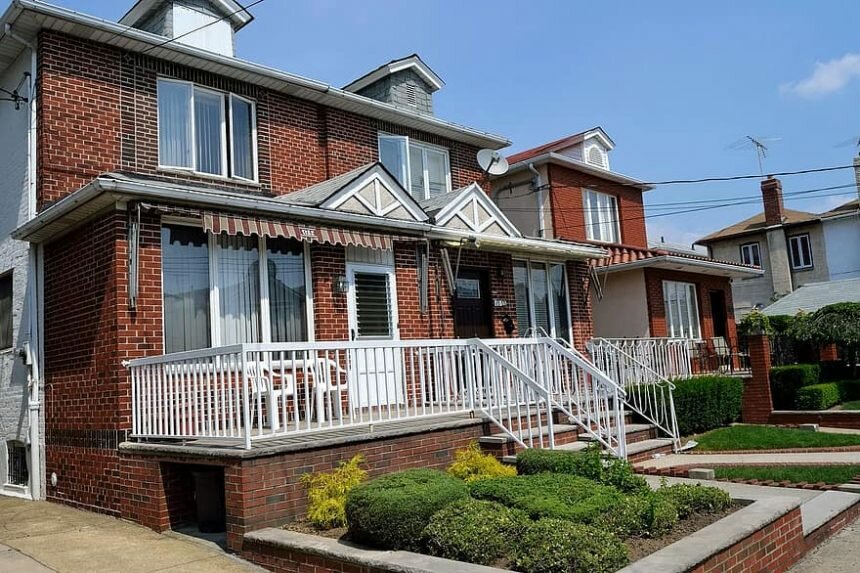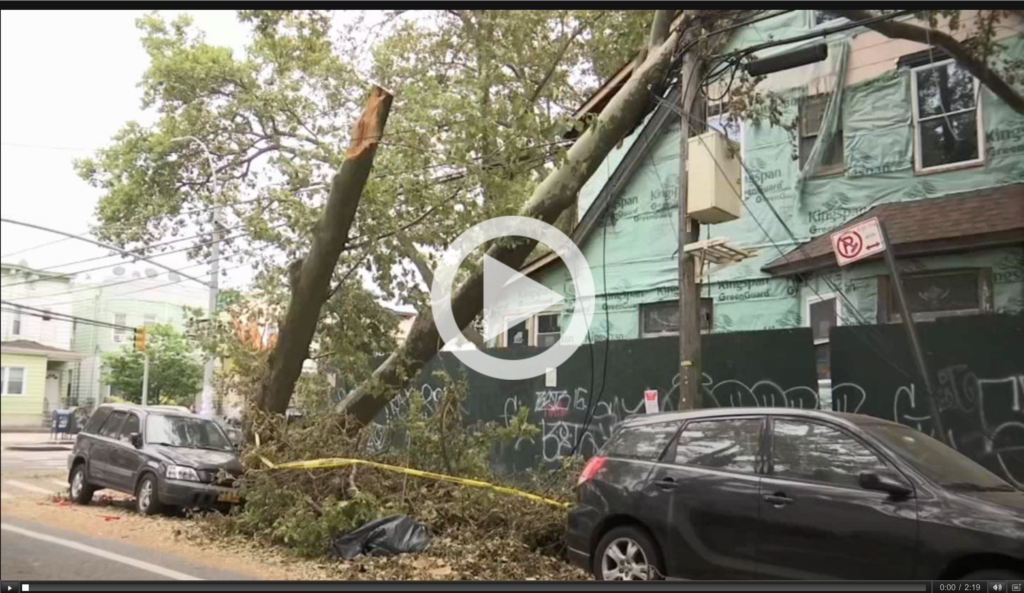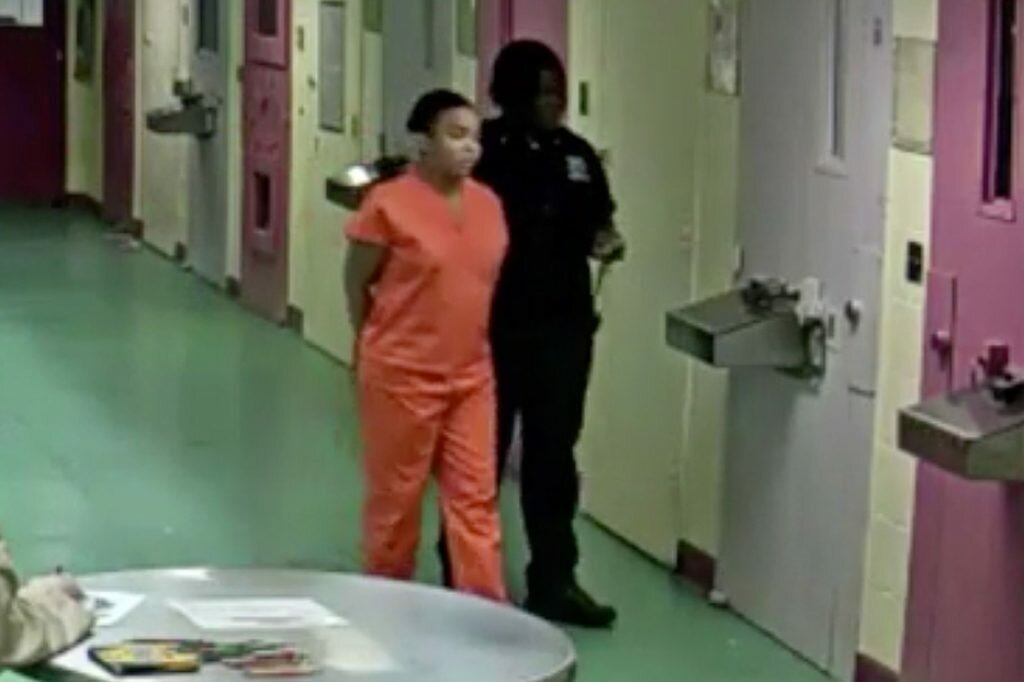
Surveillance video shows Layleen Polanco being escorted to her solitary cell on Rikers Island before her death in 2019. Source: The City
By Rosa Goldensohn and Reuven Blau
Originally published in The City on December 6, 2020.
In June, when Mayor Bill de Blasio announced he would end solitary confinement in city-run jails, he said he expected a working group to give him recommendations on how to do it “in the fall.”
The chair of the Board of Correction, which makes the rules for city lockups, said on Oct. 21 that the plan would be presented “literally in the next several days” and then voted on by board members.
Now, with the new year approaching, details of the proposal have yet to be unveiled. The Board of Correction promises a plan will be released before the end of the month.
“The City of New York and the Board of Correction, after hearing from persons with lived experience, understand that it is time to end solitary confinement in the New York City jail system,” Board Chair Jennifer Jones Austin said in a statement late last week.
“Such a complex undertaking requires meaningful planning and collaboration with the Department of Correction, the union and those with lived experience to ensure the result is a system that ensures the safety and well being of staff and people in custody,” she added.
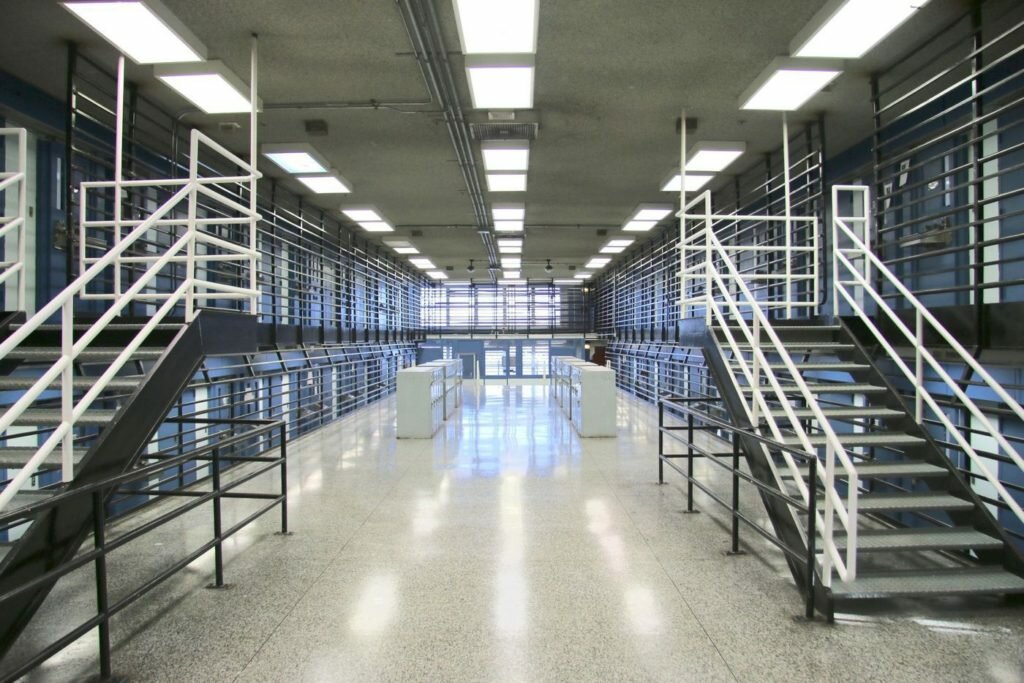
A so-called punitive segregation unit inside the George R. Vierno Center on Rikers Island.
Meanwhile, the City Council could pass its own bill to end the practice of punishing people in jails for rule-breaking by imposing isolation for most of the day and night. Some 95 people were in so-called punitive segregation in city jails as of Thursday.
Bill sponsor Danny Dromm (D-Jackson Heights) told THE CITY he believes there is enough support in the Council to approve the measure.
“I think that there are enough people have been educated on this at this point to understand that solitary is torture,” he said.
The City Council is scheduled to hold a hearing on the subject Dec. 11.
Spurred by Polanco Death
Despite a growing consensus on the psychological harms of such confinement, New York would appear to be the first major city in the country to officially ban punitive segregation outright.
De Blasio announced the change in June, citing the case of 27-year-old Layleen Polanco, who died in a solitary cell on Rikers Island just over a year earlier.
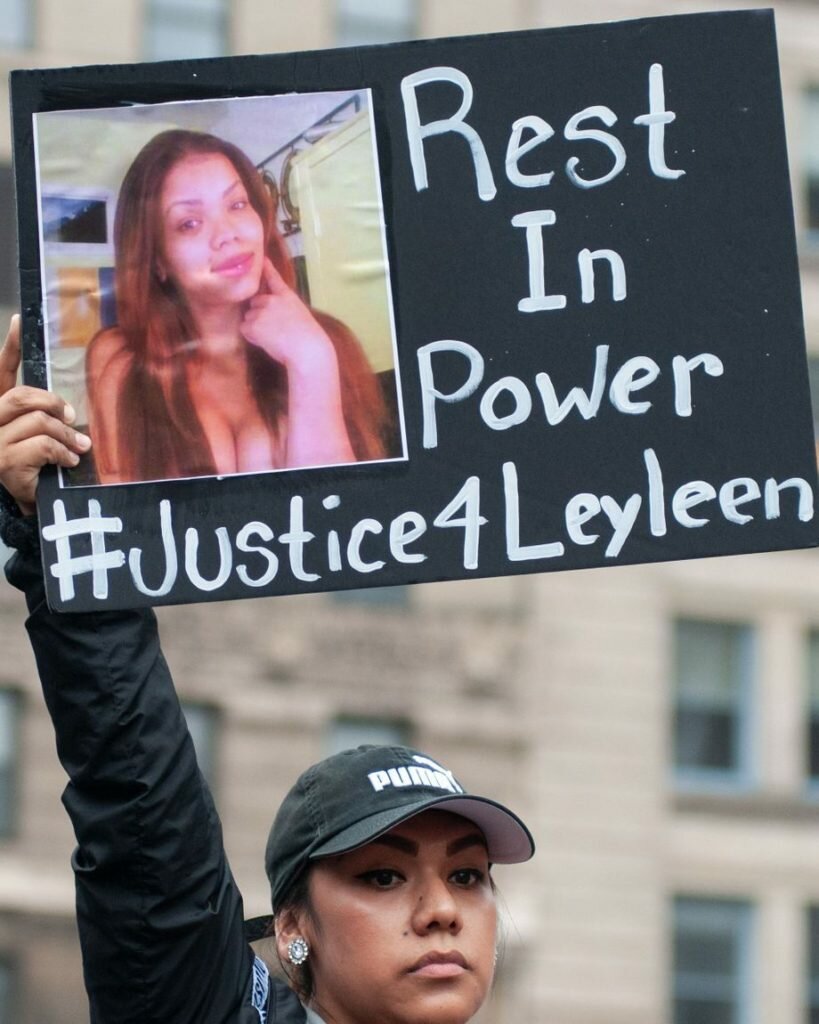
Hundreds of people packed into Foley Square to hold a vigil for Layleen Polanco, a 27-year-old transgender woman who died in solitary confinement on Rikers Island, June 10, 2019. Ben Fractenberg/THE CITY
New Jersey Governor Phil Murphy signed a bill last year limiting solitary stays to 20 days at a time, and no more than 30 days in a 60-day period.
In Chicago, Cook County Jail eliminated solitary and created a “special management unit” in its place. De Blasio previously ended solitary in the city for those under the age of 22.
In the five boroughs, solitary confinement is only allowed as a punitive measure in response to an infraction of jail rules.
A DOC captain in charge of adjudicating jailhouse infractions can dole out a sentence of up to 30 days “in the box.”
Administrative segregation, the isolation of inmates to smooth the running of the jail, is not allowed under a 2010 court ruling. But functionally, the punishments remove people who have done something violent from the general population for a period of time.
The correction officers’ union has long opposed limits on solitary, saying the tactic is needed to help keep the peace.
The city proposal will include an end to punitive segregation and an alternative way to deal with acts of violence in the jail, according to the Board of Correction.
The Council bill would also put time limits on other forms of what jailers call “restrictive housing.”
The challenge, Dromm said, is to eliminate solitary without allowing for loopholes.
Wary of Name Game
Incarceration reform efforts elsewhere have spawned replacements for solitary confinement units that critics say are merely solitary by another name.
In Canada, courts deemed prolonged solitary confinement unconstitutional. But in the “structured intervention” units meant to replace solitary, according to outside observers, prisoners often did not receive the time outside of their cell or “meaningful social contact” as promised.
Under New York State rules, local jails must allow those held in segregation four hours out of their cells daily.
But that time is not necessarily spent interacting with others. The State Commission allows showering time to count, for instance.
The city Department of Correction has also counted showering in its tally, as well as trips to the doctor and visiting time, though those do not necessarily reflect the actual daily schedule of people in segregation.
State prisons, which regularly hold people in solitary for months at a time, are not subject to the four-hour rule. Some prisoners are held alone 24 hours a day, with an hour out in a solo cage attached to their cell.
As of Dec. 1, some 1,173 inmates were serving a “Special Housing Unit” (SHU) disciplinary sanction in solitary cells across New York State prisons, officials said.
‘Meaningful Human Engagement’
A bill to restrict solitary in state prisons failed last year even though it had enough co-sponsors to pass on their votes alone. Gov. Andrew Cuomo and legislative leaders Carl Heastie and Andrea Stewart-Cousins quashed the measure in favor of a set of looser requirements that were then delayed.
The Dec. 11 hearing will include discussions of the de Blasio administration’s proposal and the City Council’s legislation to end solitary, according to Councilmember Keith Powers (D-Manhattan), who chairs the Criminal Justice committee.
“There’s a groundswell of support to end harmful solitary confinement policies in New York City jails,” he said in a statement. “This is a long-overdue conversation.”
Advocates against solitary, who put out their own plan to end the practice in city jails last year, said the Council action was “positive,” but that it should make sure to avoid “carve-outs.”
“The basic minimum standards in the city jails of 14 hours out-of-cell per day with access to meaningful human engagement and programming should apply to everyone,” Anisah Sabur of the #HALTsolitary Campaign said in a statement.
The union representing frontline city correction officers opposes scrapping solitary.
“With jail violence soaring in our jails year after year, it’s time for our elected officials to put safety and security first and empower us to separate violent offenders from non-violent offenders,” said Benny Boscio Jr., president of the Correction Officers Benevolent Association.
Read more here.
